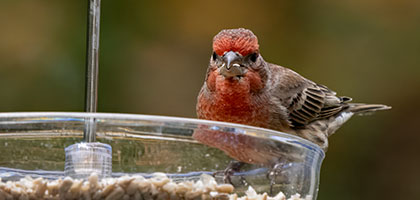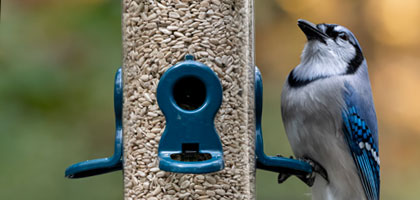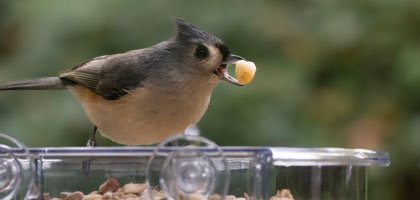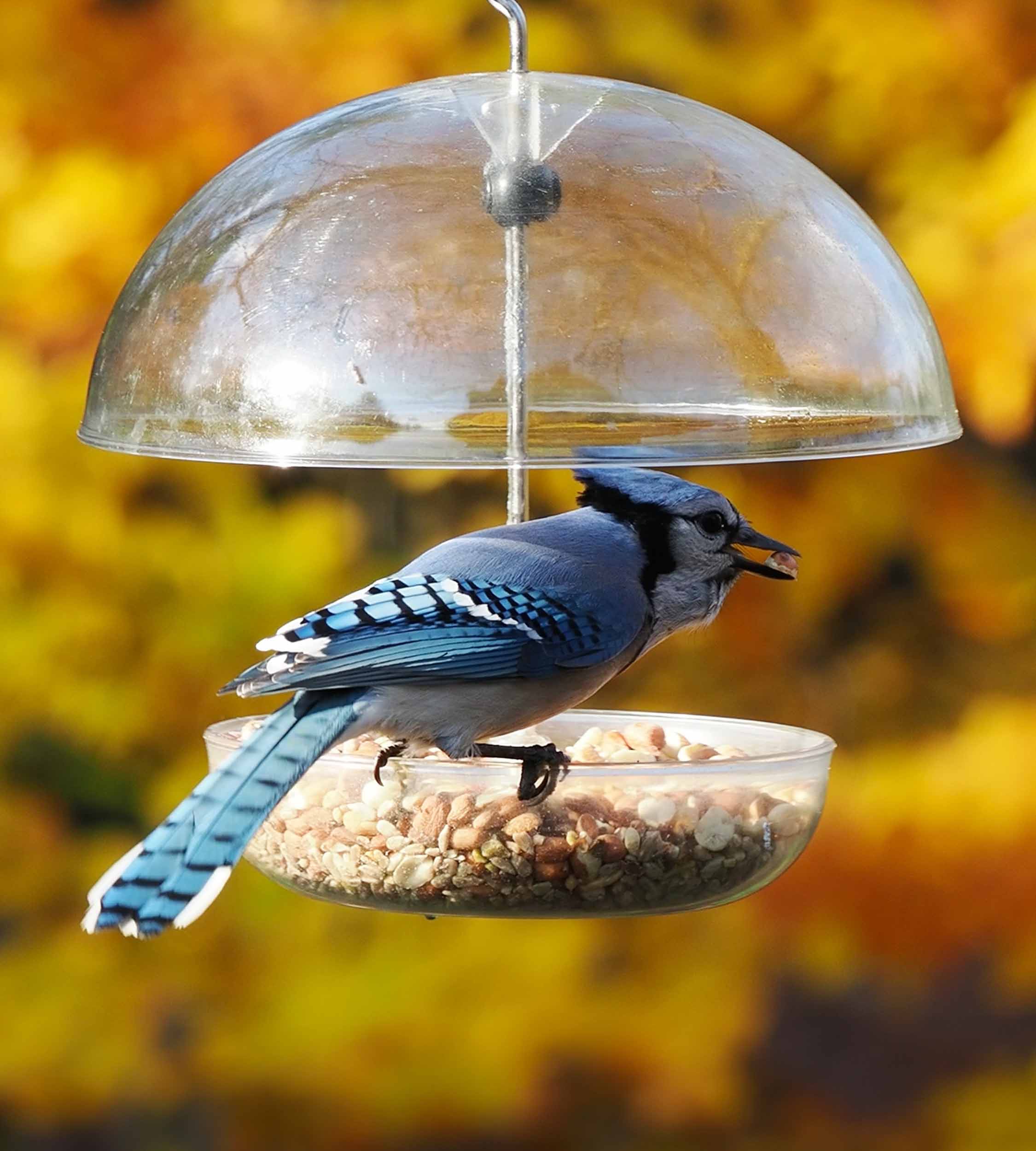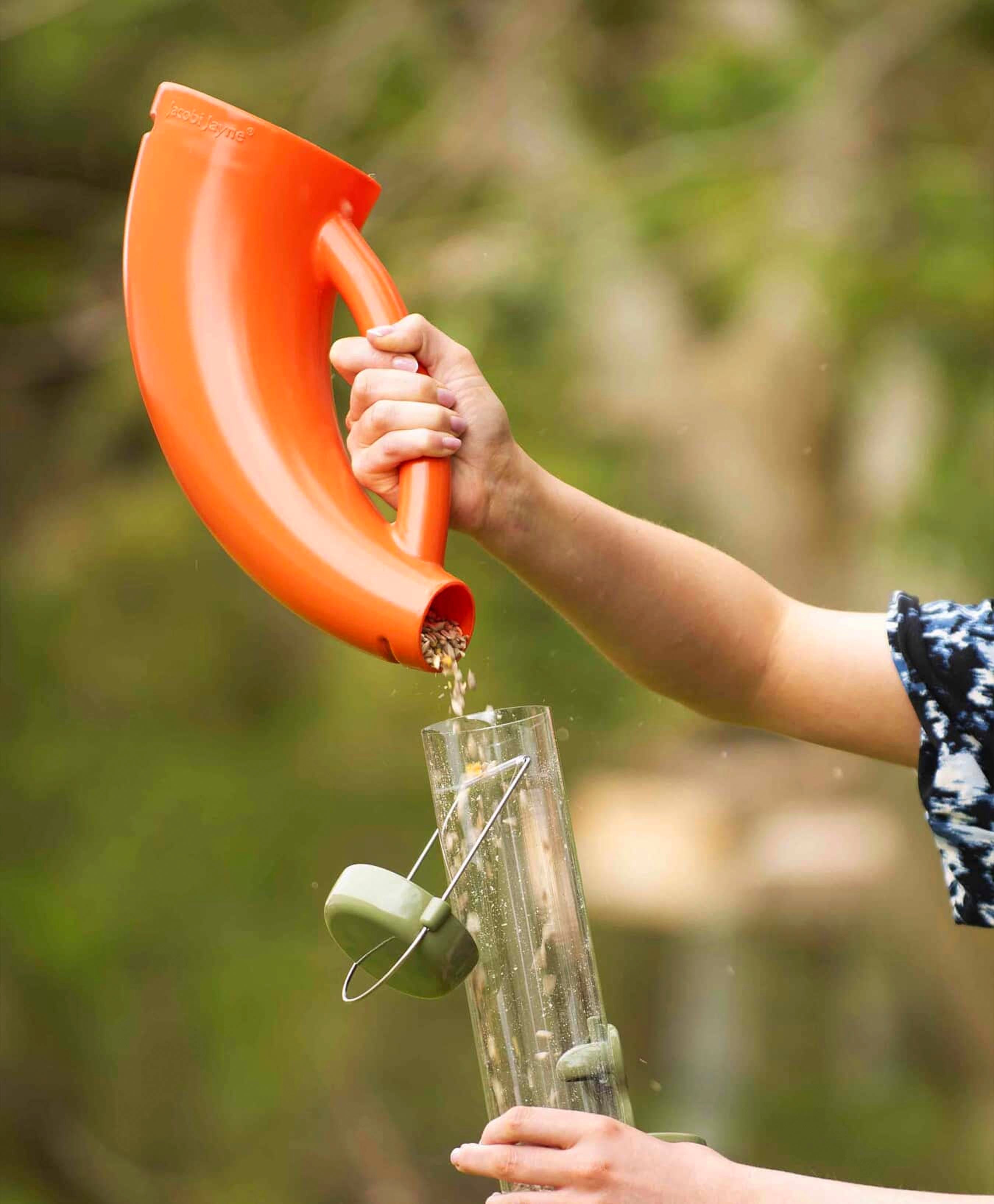Feeding wild birds is a simple and rewarding way to attract them to your yard while helping them stay nourished throughout the year. But what should you offer to keep your wild birds healthy and coming back for more? Here’s a guide on what to feed wild birds, ensuring they get the nutrition they need.
1. Birdseed Mixes
Birdseed mixes are one of the most popular and convenient options for feeding wild birds. These mixes typically include a variety of seeds that cater to different types of backyard birds. The most common and beneficial seeds in mixes are:
• Black oil sunflower seeds – High in fat and protein, these seeds are loved by many types of wild birds.
• Millet – A favorite for ground-feeding birds, millet provides essential nutrients.
• Cracked corn – This attracts a variety of wild birds and is rich in carbohydrates.
• Safflower seeds – These are great for wild birds but less appealing to squirrels.
Look for quality birdseed mixes without fillers like oats or wheat, which many wild birds avoid.
2. Sunflower Seeds
If you want to stick with a single seed, black oil sunflower seeds are the top choice. They have a soft shell and high oil content, making them an excellent source of energy for wild birds. You can also offer striped sunflower seeds, which are larger and have a harder shell.
3. Nyjer (Thistle) Seeds
Nyjer seeds are tiny, nutrient-rich seeds that are ideal for attracting small backyard birds. These seeds are high in oil content, providing energy and warmth, especially during the colder months. Use a special feeder with small holes to avoid wasting these seeds, as they can be costly.
4. Suet
Suet is an excellent food source for wild birds, especially during colder months when birds need extra energy to stay warm. Suet is a fat-based food that provides wild birds with the energy they need to survive. You can find suet in blocks or cakes that can be placed in specialized suet feeders.
Suet often comes with additional ingredients like nuts or dried fruit to make it even more appealing. It’s especially beneficial for wild birds during the winter when natural food sources are scarce.
5. Mealworms
Dried or live mealworms are a fantastic protein source for wild birds. Offering mealworms can help attract birds looking for insects, which are a natural part of their diet. Mealworms are especially useful during nesting season, as they provide important nutrition for birds raising their young.
Place mealworms in a dish or specialized feeder to prevent them from scattering.
6. Peanuts
Unsalted, shelled peanuts are another excellent source of protein and fat for wild birds. They are a favorite among many types of backyard birds and can be offered whole, shelled, or even chopped. Be sure to avoid salted or flavored peanuts, as they can be harmful to birds.
Peanuts are best served in mesh feeders that allow birds to easily grab them while keeping them secure from falling to the ground.
7. Fresh Fruit
Fruits are a natural treat for wild birds, especially in the warmer months. Offer sliced or chopped fruits like:
• Apples
• Pears
• Berries
• Grapes
These fruits are rich in vitamins and natural sugars, providing quick energy for backyard birds. Avoid citrus fruits, as they can be harmful to some wild birds.
8. Nectar for Wild Birds
While most people associate nectar with hummingbirds, other wild birds may also appreciate a nectar solution. You can make your own nectar by mixing four parts water to one part sugar (avoid using honey or artificial sweeteners). Place the nectar in a specialized feeder, and remember to change it frequently, especially in warm weather, to prevent spoilage.
9. Cracked Corn
Cracked corn is an affordable option that attracts many types of wild birds. It’s rich in carbohydrates, providing energy for birds throughout the day. Cracked corn works well when scattered on the ground or placed in platform feeders, and it’s a good choice for backyard birds that prefer ground feeding.
10. Avoid Harmful Foods
While it’s tempting to offer kitchen scraps to wild birds, not all human foods are safe for them. Avoid feeding birds:
• Bread – It offers no nutritional value and can fill birds up without providing them the energy they need.
• Salty or processed foods – Salt is harmful to wild birds, and processed foods can contain chemicals or preservatives that are dangerous.
• Milk – Birds can’t digest dairy, so avoid offering it.
Stick to natural, bird-friendly options to keep your wild birds healthy.
Final Thoughts
Feeding wild birds is a wonderful way to connect with nature and support local wildlife. By offering a variety of seeds, suet, fruit, and even mealworms, you’ll attract a diverse range of backyard birds to your feeder. Always ensure the food you offer is fresh and nutritious, and avoid harmful human foods.
